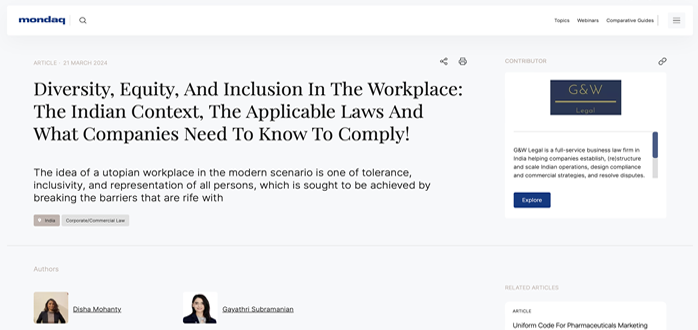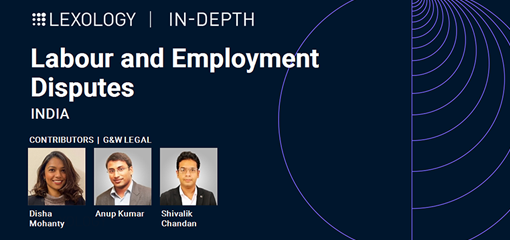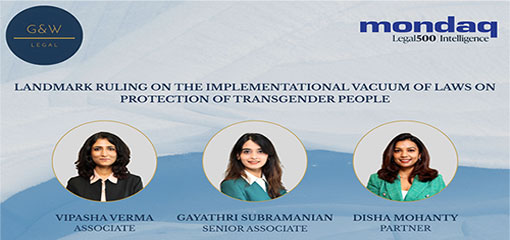
The idea of a utopian workplace in the modern scenario is one of tolerance, inclusivity, and representation of all persons, which is sought to be achieved by breaking the barriers that are rife with prejudice, discrimination, and historical marginalisation of persons based on their personal characteristics and socio-economic factors.
The growing demand for diversity, equity, and inclusivity in the workplace has required the Indian Government and the businesses to make a paradigm shift in their policies and culture to adapt to this societal change. In this article, we explore whether the initiatives and measures taken by the Indian Government and businesses meet the requirements in the Indian scenario.
The Indian Constitution contemplates DEI principles as part of the fundamental rights of a person. A person’s right to equality before the law and equal protection of the laws is granted under Article 14, the discrimination of any citizen on the grounds of religion, race, caste, sex, or place of birth is prohibited under Article 15, and the equality of opportunity for all citizens in matters of employment is granted under Article 16.
The evolving jurisprudence of the Indian Constitution has enshrined the concept of ‘equity’ within its ambit by recognising the doctrine of reasonable classification, which allows the law to make reasonable classifications or differentiations to account for the unequal circumstances that one may face. This achieves the purpose of ensuring that likes are not treated unlike, and unlike are not treated alike.
Given the context discussed above, the concept of DEI in the workplace would entail not only recognising such diverse characteristics/ differences but also respecting, celebrating, and accommodating them, while ensuring equity in access, treatment and opportunities and providing an inclusive environment where all persons feel welcomed to be a part of the collective.















